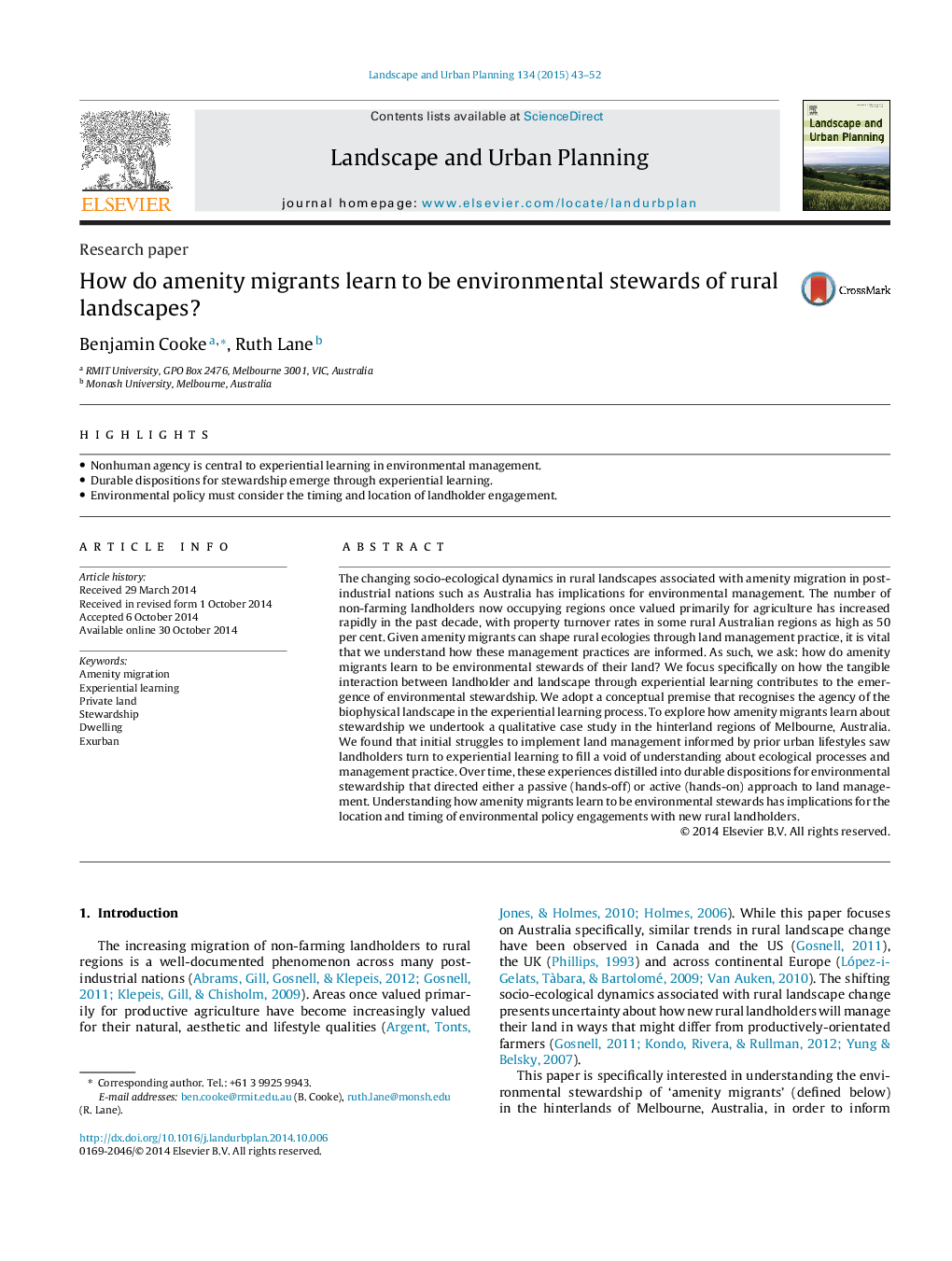| کد مقاله | کد نشریه | سال انتشار | مقاله انگلیسی | نسخه تمام متن |
|---|---|---|---|---|
| 1049149 | 1484624 | 2015 | 10 صفحه PDF | دانلود رایگان |
• Nonhuman agency is central to experiential learning in environmental management.
• Durable dispositions for stewardship emerge through experiential learning.
• Environmental policy must consider the timing and location of landholder engagement.
The changing socio-ecological dynamics in rural landscapes associated with amenity migration in post-industrial nations such as Australia has implications for environmental management. The number of non-farming landholders now occupying regions once valued primarily for agriculture has increased rapidly in the past decade, with property turnover rates in some rural Australian regions as high as 50 per cent. Given amenity migrants can shape rural ecologies through land management practice, it is vital that we understand how these management practices are informed. As such, we ask: how do amenity migrants learn to be environmental stewards of their land? We focus specifically on how the tangible interaction between landholder and landscape through experiential learning contributes to the emergence of environmental stewardship. We adopt a conceptual premise that recognises the agency of the biophysical landscape in the experiential learning process. To explore how amenity migrants learn about stewardship we undertook a qualitative case study in the hinterland regions of Melbourne, Australia. We found that initial struggles to implement land management informed by prior urban lifestyles saw landholders turn to experiential learning to fill a void of understanding about ecological processes and management practice. Over time, these experiences distilled into durable dispositions for environmental stewardship that directed either a passive (hands-off) or active (hands-on) approach to land management. Understanding how amenity migrants learn to be environmental stewards has implications for the location and timing of environmental policy engagements with new rural landholders.
Journal: Landscape and Urban Planning - Volume 134, February 2015, Pages 43–52
